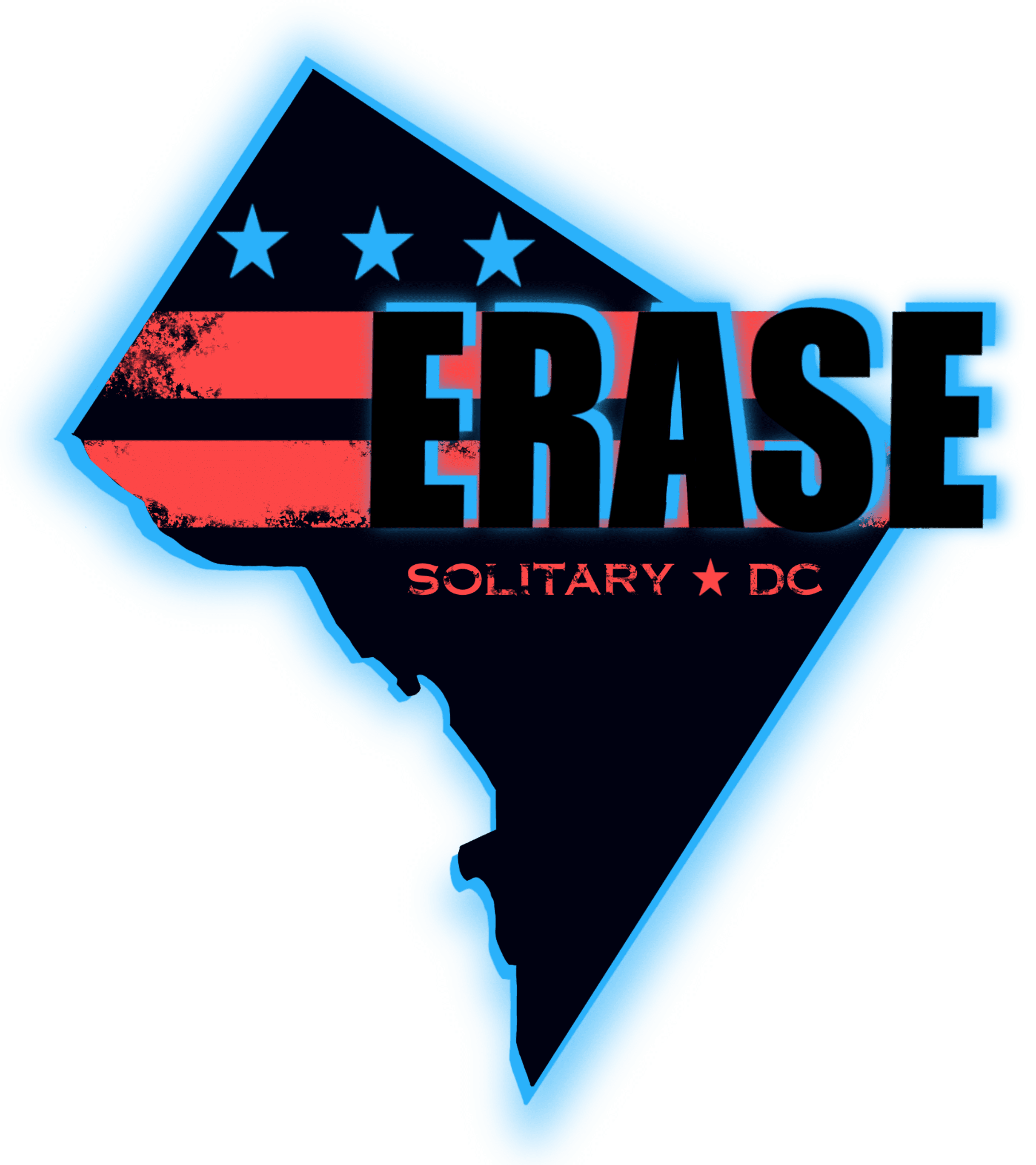ERASE
SOLITARY
Erase
Torture
Erase
Solitary
Erase
Torture





The Unlock the Box DC Coalition is a group of transformative justice advocates working to end the use of solitary confinement in all its forms in the District of Columbia. The DC Coalition is part of the Unlock the Box national campaign to end solitary confinement in the United States. The national campaign includes partners from 19 states and DC working to transform incarceration and end the use of solitary confinement nationwide.
Unlock the Box DC has helped craft the Eliminating Restrictive and Segregated Enclosures (“ERASE”) Solitary Confinement Act of 2025, legislation that would end solitary confinement at the DC Jail. Read More.
To reach out and to get involved, please email:
To join the Unlock the Box Monthly Meetings, please email:
For media inquiries about Unlock the Box, please email:

